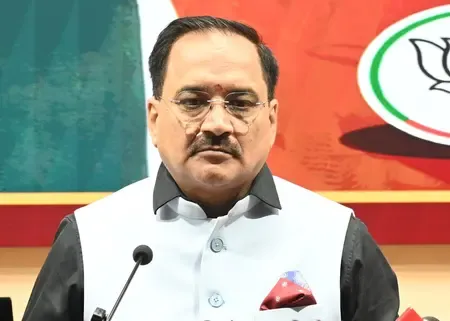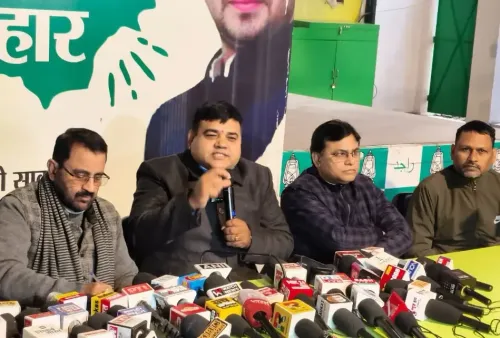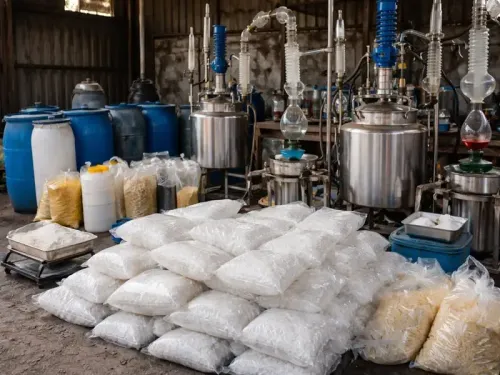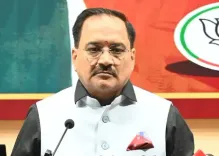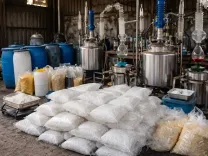Is India’s Assistance to Kabul Limited to Quake Relief?
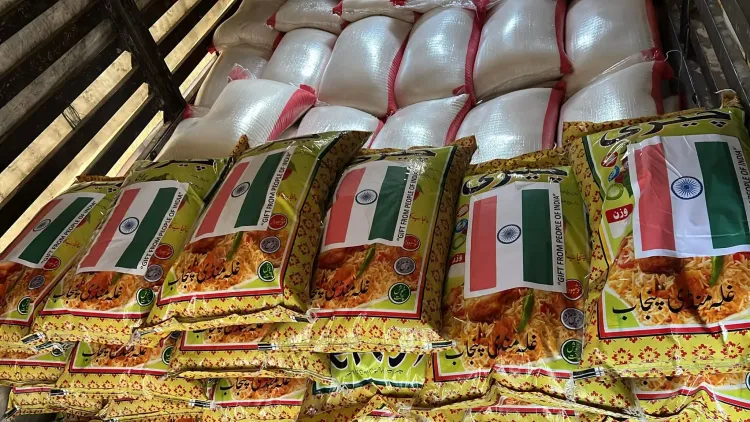
Synopsis
Key Takeaways
- India's humanitarian aid is multi-faceted, addressing immediate needs while planning for long-term development.
- Geopolitical strategies drive India's cautious engagement with the Taliban.
- Stabilizing Afghanistan is crucial for regional security and counter-terrorism efforts.
- India's historical investments in Afghanistan lay a foundation for future cooperation.
- Pragmatism is key; India must actively participate in the evolving geopolitical landscape.
New Delhi, Sep 6 (NationPress) The humanitarian aid sent by New Delhi immediately following the devastating earthquake that struck southeastern Afghanistan in late August is far from an isolated act.
Despite not officially recognizing the Taliban leadership in Kabul, India has consistently extended its support for the welfare of the people in this troubled nation.
India’s growing engagement with the Taliban is not rooted in ideological affinity but is instead motivated by geopolitical imperatives. Since the regime regained power in August 2021, New Delhi has shifted from outright rejection to a more cautious diplomatic approach.
The rationale behind India’s engagement with the Taliban encompasses several strategic objectives. A stable regime in Afghanistan could help deny safe havens to terror proxies based in Pakistan, thereby enhancing India’s border security.
Additionally, Afghanistan acts as a crucial land corridor to Central Asia and the Chabahar port, providing New Delhi with alternative routes for trade and energy.
Interestingly, a report from a Parliamentary Standing Committee presented in March this year highlighted the necessity for initiatives focused on the welfare of women and children in Afghanistan.
It pointed out that the budget allocation for 'Aid to Afghanistan' was initially set at Rs 200 crores for the Budget Estimate (BE) 2024-25, but this was later adjusted to Rs 50 crores during the Revised Estimate (RE) phase.
This amount was then increased to Rs 100 crores in the BE 2025-26.
As per the External Affairs Ministry, the budget allocated to Afghanistan since August 2021 primarily aimed to stabilize the nation concerning food security, medicine, and emergency assistance.
The report quoted the Ministry, stating that with these efforts yielding positive outcomes, leading to significant improvements, there are plans to explore developmental cooperation projects alongside ongoing humanitarian aid.
Previously, India invested a total of USD 3 billion in infrastructure such as dams, hospitals, and education before 2021. The Taliban is now seeking assistance from New Delhi for various construction projects, with operations likely to resume as security conditions improve.
New Delhi encounters obstacles in transporting personnel and materials via land routes through Pakistan, where numerous bureaucratic and political hurdles often arise. Moreover, conflicts at the Af-Pak border can result in prolonged delays at entry points.
Despite facing various challenges, India has successfully maintained several long-term humanitarian and reconstruction initiatives. Such efforts have fostered goodwill, countering the geopolitical maneuvers of other nations.
The history of these diplomatic maneuvers is well-documented by Peter Hopkirk in his book, 'The Great Game.'
He extensively explored the diplomatic significance of Afghanistan, detailing both overt and covert conflicts in the region over the centuries.
The book's title—derived from a term coined by British intelligence officer Captain Arthur Conolly in the 19th century—aptly reflects the ongoing diplomatic rivalry.
While some analysts argue that India lacks a clear policy regarding Afghanistan, others refer to it as strategic patience.
Throughout this period, New Delhi has re-evaluated and adjusted its strategies, consistently reaching out to successive governments in Kabul.
Recently, following a meeting between Foreign Secretary Vikram Misri and the Acting Foreign Minister of Afghanistan, Mawlawi Amir Khan Muttaqi, in Dubai, it was agreed to explore development cooperation projects in addition to the current humanitarian efforts.
Afghanistan has been vocal against the Pahalgam incident, with Muttaqi contacting External Affairs Minister S. Jaishankar to express their sentiments.
Shortly after the recent earthquake, Jaishankar reached out to Muttaqi via phone to convey condolences for the lives lost.
The efforts are ongoing, but a pragmatic approach is essential. India cannot afford to be a mere spectator in the next 'Great Game.'


